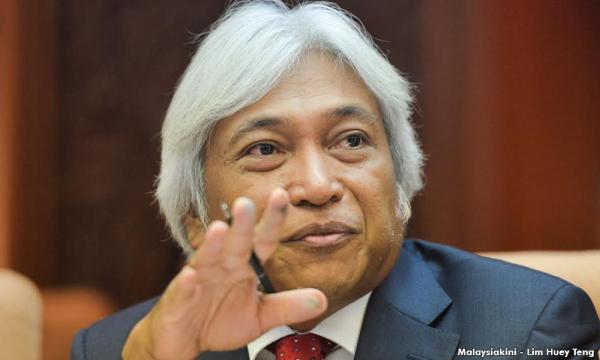The ringgit strengthened 14.6 percent in 2017 and has been the most stable currency in the region as economic outlook remains strong, said Bank Negara governor Muhammad Ibrahim.
In his speech at the Takaful Annual Dinner and Awards 2018 in Kuala Lumpur yesterday, the governor said Bank Negara had always indicated that market forces would determine the value of the ringgit.
“There has never been a target level for the ringgit exchange rate. With the economy and financial markets constantly evolving, fixation on a particular level of the ringgit exchange rate is counterproductive, if not detrimental to the economy.
“What matters for Bank Negara and all of us here is to ensure that any adjustments taking place are done in a gradual and orderly manner, without causing undue disruptions to businesses and households,” he added.
Muhammad said the foreign exchange market can sometimes be very fickle, and therefore, Bank Negara should always remain on guard.
He also said the global economic and financial conditions may change rapidly following many developments such as normalisation of interest rates, geopolitical risks and the tendency to adopt policies that might curtail open trade.
“The ringgit’s recent appreciation and stability is not something that the country should take for granted as what has been learnt in recent years were to never downplay the unexpected.
“The rapid decline in global oil prices, drastic disruptive policy shifts in major economies, and the more recent increase in trade tensions are prime examples of tail-risk events that will continue to affect our economy and the ringgit,” he added.
On the Malaysian economy, he said the domestic economy grew strongly by 5.9 percent in 2017, supported by the global growth upswing and robust domestic demand which remained central to Malaysia’s growth, grounded on healthy income and labour market conditions.
“This is not the fruition of just one year’s effort. It is a reflection of the successful structural changes undertaken over the last two decades.
“Malaysia’s shift towards a domestic demand-driven economy and continuous economic diversification have placed us in a very good position to adapt to and leverage on the changes in the global economy,” he said.
Muhamad said another transformation that has taken place in the past two years was the increased sophistication of the onshore financial and foreign exchange market.
The introduction of the Financial Markets Committee measures has also put in place the foundation for a healthier and more vibrant financial and foreign exchange market, he added.


